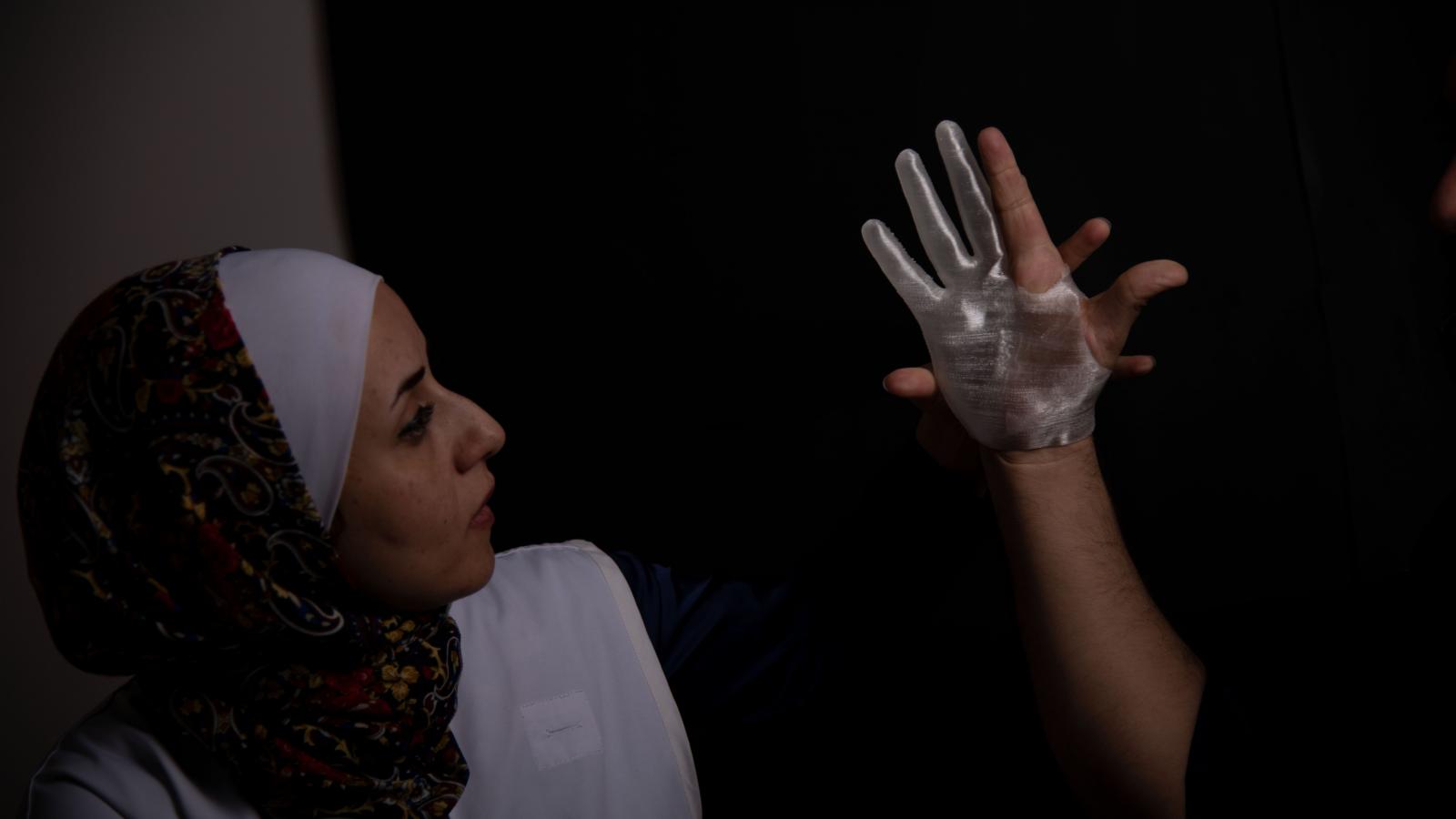Research and Innovation

ANTIBIOTIC STEWARDSHIP PROGRAMME
More than 50% of patients arrive at the RSP with chronic infection, and more than 60% of these infections are multidrug-resistant. It is vital for MSF to find a way to respond to the severity of antibiotic resistance, which is a worldwide public health issue, and a particularly serious one when dealing with war-wounded patients in the Middle East. In Amman, patients are coming from countries where access to antibiotics is not regulated, where infection control and hygiene systems in hospitals have been destroyed, and where emergency life-saving treatment, not infection control, is the priority.
The Antimicrobial Stewardship Programme at the RSP aims to promote optimal antibiotic use in hospitals to help combat the ever-growing global threat of antibiotic resistant infections. This is achieved through the implementation of the 4 Ds:
- Correct drug
- Correct dose
- Correct duration
- De-escalation of antibiotic therapy
More than 50 per cent of patients at the RSP arrive with chronic infection and more than 60 per cent of these infections are multidrug-resistant (MDR), reflecting the high levels of resistance in the region.
MICROBIOLOGY LAB
In 2015, the RSP implemented a microbiology laboratory in the hospital with the objective of improving the quality of MSF's medical interventions for patients with infectious complications of conflict injuries, and to provide guidance for the management of drug-resistant orthopedic infections faced by other regional medical providers.
THE LABORATORY HAS THREE SPECIFIC AIMS
- Provide high-quality bacteriological analysis of patient specimens, including the detection of antibiotic resistance.
- Support ongoing research and data collection in the field of orthopedic surgery from a microbiological standpoint.
- Referent centre for the training of MSF laboratory staff.
3D PRINTING PROSTHETICS
The implementation of a 3D-Printing project was introduced to the RSP through the MSF Foundation at the beginning of 2017, which aims to design and produce prosthetics for upper-limb amputees as an alternative to conventional prosthetics, as well assess the feasibility of other 3D-printed rehabilitation and prosthetic devices.
Although there are many prosthetic options for lower-limb amputees, there is little available for upper-limbs. As a result, the 3D-Printing team aims to target this population offering a customised lighter and cheaper prosthetic for patients, which is potentially significantly faster to produce than a traditional prosthetic.
For each patient, the team first assess the stump and the needs of the patient, and then make a scan of the stump, designing a socket and upper-limb prosthesis on digital software. Finally, the device is printed and customized to suit the patients’ needs. The aim of the project is to design and create upper-limb prosthetics unique to each patient, offering a cosmetic solution to their stump, as well as enabling them to carry out specific tasks.
This project is still a work in process, but will hopefully expand to meet the needs of other MSF missions in the future.

